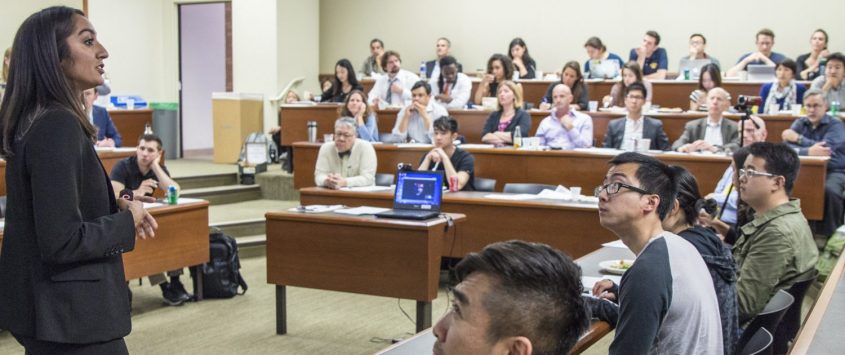
Real-World Experience for Public Policy Students In Applied Policy Project presentations, Luskin students pitch policy solutions for clients and get feedback from faculty and peers
By Stan Paul
As graduation looms, Public Policy students from UCLA’s Luskin School of Public Affairs face an annual rite of passage — a culmination of two years of study known as the Applied Policy Project (APP). Getting a master’s degree hangs in the balance.
In teams of two or more, the students present their research to a gallery of policy experts from the Luskin School. Standing before wide-screen projections that illustrate the results of seemingly endless hours of study and investigation, the sharply dressed students review complex policy issues and present possible solutions. As fellow students cluster nearby to show support, Luskin faculty, project advisers and clients listen intently and evaluate each project’s effectiveness. Was there enough attention to detail? Is the concept logical? Is it relevant? Persuasive? And, most importantly, is it supported by evidence?
These challenging presentations are only part of the process. The Master of Public Policy (MPP) candidates also face follow-up questions from faculty and colleagues, who inquire about options researched but not presented, or merits of the solutions they have proposed.
Select main image below to start slide show:
This year, client projects ranged from local transportation, policing and social justice issues to international employment, education and the well-being of workers in developing countries. State issues such as high-speed rail and health care reform were addressed, as were the short-term rental market and electric vehicle charging options.
The clients included the Southern California Association of Governments, the Coalition for Engaged Education, the California High Speed Rail Authority and Covered CA, among others.
“Public Policy education isn’t about abstractions,” said Mark Peterson, chair of the Department of Public Policy. “It’s about deriving effective solutions to real problems and being able to communicate the value and efficacy of those solutions to decision makers. The Applied Policy Projects put our MPP students in that real-world arena. Their oral presentations and the probes from the faculty put their ideas and analysis to the test in real time, just the preparation our graduates need as they take up positions in government agencies, nonprofit organizations and private firms striving to address the pressing issues of the day.”
The three-day APP program featured 62 students and 18 presentations, each lasting 20 minutes, followed by 10 minutes of Q&A. Here are highlights of three of the students’ talks, which took place in May:
Medical Education for Future Leaders
What do medical students need to learn today to become leaders in medicine for the future?
Three MPPs — two of them also current UCLA medical students — devoted their project to finding an answer to this question. Their project is no mere thought experiment. The UCLA Geffen School of Medicine, which has already begun to address this issue, is the client for the project to determine the needs and direction of a modern, forward-looking medical school and the education it provides.
MD-MPP students Monica Boggs and Maggie Chen, and their project partner Jeffrey Lyu, an MBA-MPP student, presented their findings and made recommendations to their client-partner, Clarence J. Braddock III, the vice dean for education and chief medical education officer for the Geffen School of Medicine.
“Physicians need to have the understanding that they are part of something bigger,” Lyu said during the presentation. “What’s encouraging is that the school is already moving in that direction.”
Among the recommendations of the group:
- Improving curricular tracking
- Fine-tuning candidate selection, including attention to identified attributes and “character traits.”
- Identifying faculty champions and growing grassroots communities to promote information-sharing among faculty to build knowledge among faculty and provide role models for students
- Communicating a commitment to identified attributes such as awards for faculty and students that demonstrate “attributes essential to the physician of the future.”
“This one is going to hit the ground running,” said faculty adviser Wes Yin, associate professor of Public Policy. Yin said the students will present their project again for the medical school.
Filling Policy Gaps
For some students finding solutions to problems can arise from other new or existing policy solutions.
Take the newly opened Expo Line extension linking downtown to Santa Monica by light rail. While the new line provides a long-anticipated transportation solution between these two areas, the volume of ridership remains uncertain. In anticipation of this, the City of Santa Monica, as client, commissioned a group of MPPs to look at how to increase ridership given that West L.A. — and Los Angeles in general — is stubbornly “auto-centric.”
The students, Abdallah Daboussi, James Howe, Natalia Sifuentes and Takehiro Suzuki, looked at the question of how to create incentives for ridership to help Santa Monica toward development of a sustainable goal of “no net new vehicle trips.” The group recognized the barriers created by the cost of an entire round-trip and availability of first/last-mile connections, as well as built-environment limitations such as which stations are already in place, and a lack of interest by the City of Santa Monica in building new parking, Daboussi explained.
“Our job was to fill in those gaps,” Daboussi said, adding that the accompanying criteria included analyzing the impact of cost, the level of political acceptance and compatibility with the surrounding environment and existing infrastructure. To do this, the RIDERS (Ridership Increases by Developing Expo Line Solutions) team conducted on-site assessments and used GIS (Geographic Information System) data to gauge land use around the existing stations.
Possible solutions included creating public-private partnerships with commercial parking, incentives for the elderly and disabled, a public service announcement program that included free radio spots and an installation of “wayfinding” signs to help riders easily navigate to area stations. The students also recommended creating a means to connect with the Expo Line for those who use a bicycle as part of their daily transportation.
Worker Well-Being
Another MPP group looked at the challenge of increasing the well-being of urban workers in India. Availability of jobs in general is important, but other factors are just as necessary.
“It’s not just about job quantity but also about job quality” in the distribution of well-being and motivation, said team member Kurt Klein.
Second-year MPP student Wajenda Chambeshi discussed some of these factors, including jobs in which workers have the opportunity to move up. Strategies to bolster employment and the labor market are needed, as are ways to give a voice and representation to workers.
The client for the project was the Institute of Development Studies (IDS) and the adviser was Manisha Shah, associate professor of Public Policy and APP coordinator. Shah has studied anti-poverty programs and workfare schemes in India, as well as development around the world.
Yin provided some context about how much time the Luskin students spend working on the presentations. “Students have been working on the projects since the summer before their second year of the program,” said Yin. He added that students may start fully committed to an idea at the outset, but part of the process is narrowing their focus once they realize the scope of these issues.
Yin said he was impressed with this year’s students and that their hard work has materialized into “actionable” items for their clients.
Tae Kang, an MPP candidate who was part of an APP presentation to the Coalition for Engaged Education, said the process is stressful but provides valuable experience for UCLA Luskin Public Policy students.
“While I was a bit nervous to present in front of my brilliant professors and colleagues, I was more excited that this would be the culmination of all of our hard work, all the challenges we have overcome, and the relationships we have formed,” Kang said. “And as I took that first step forward and that next step, I could not have been more excited and honored to be in this program.”
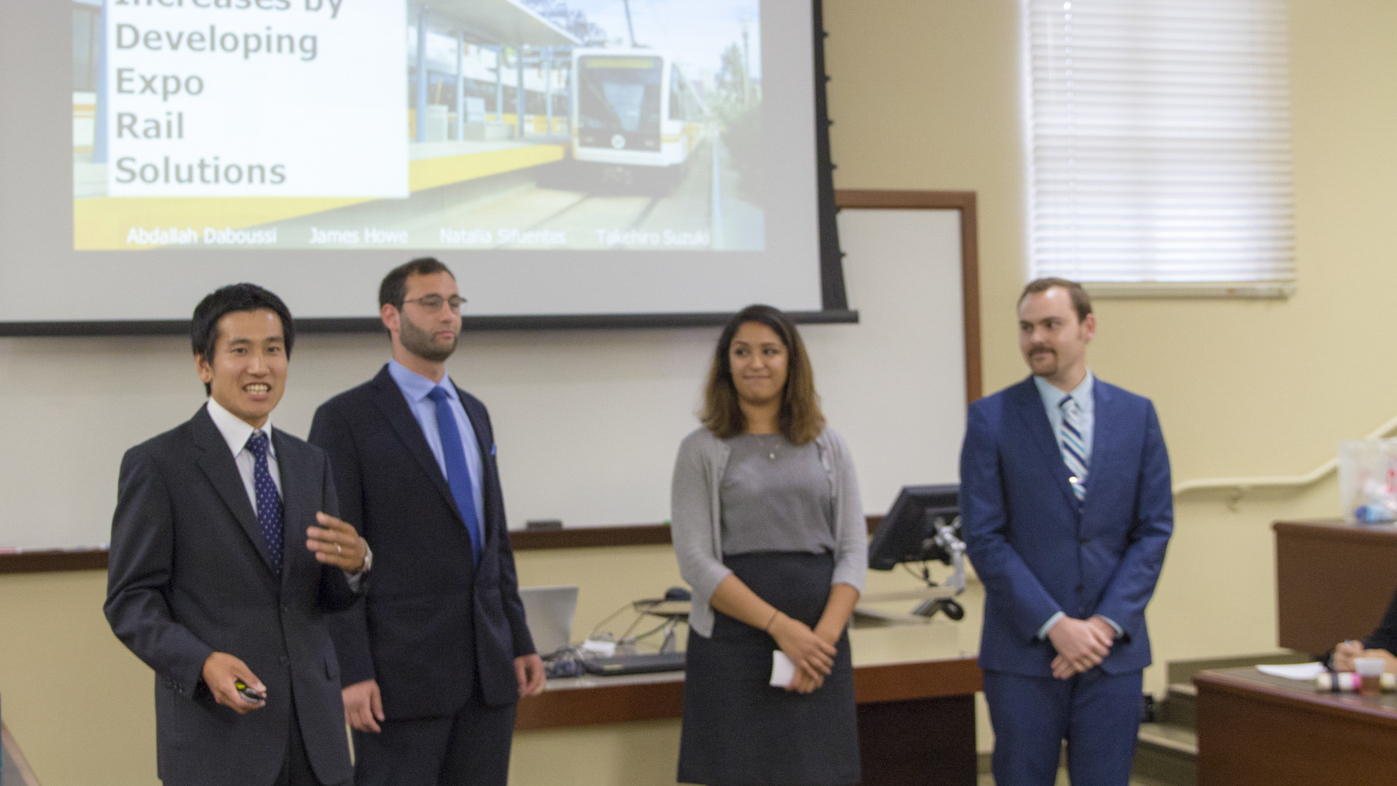


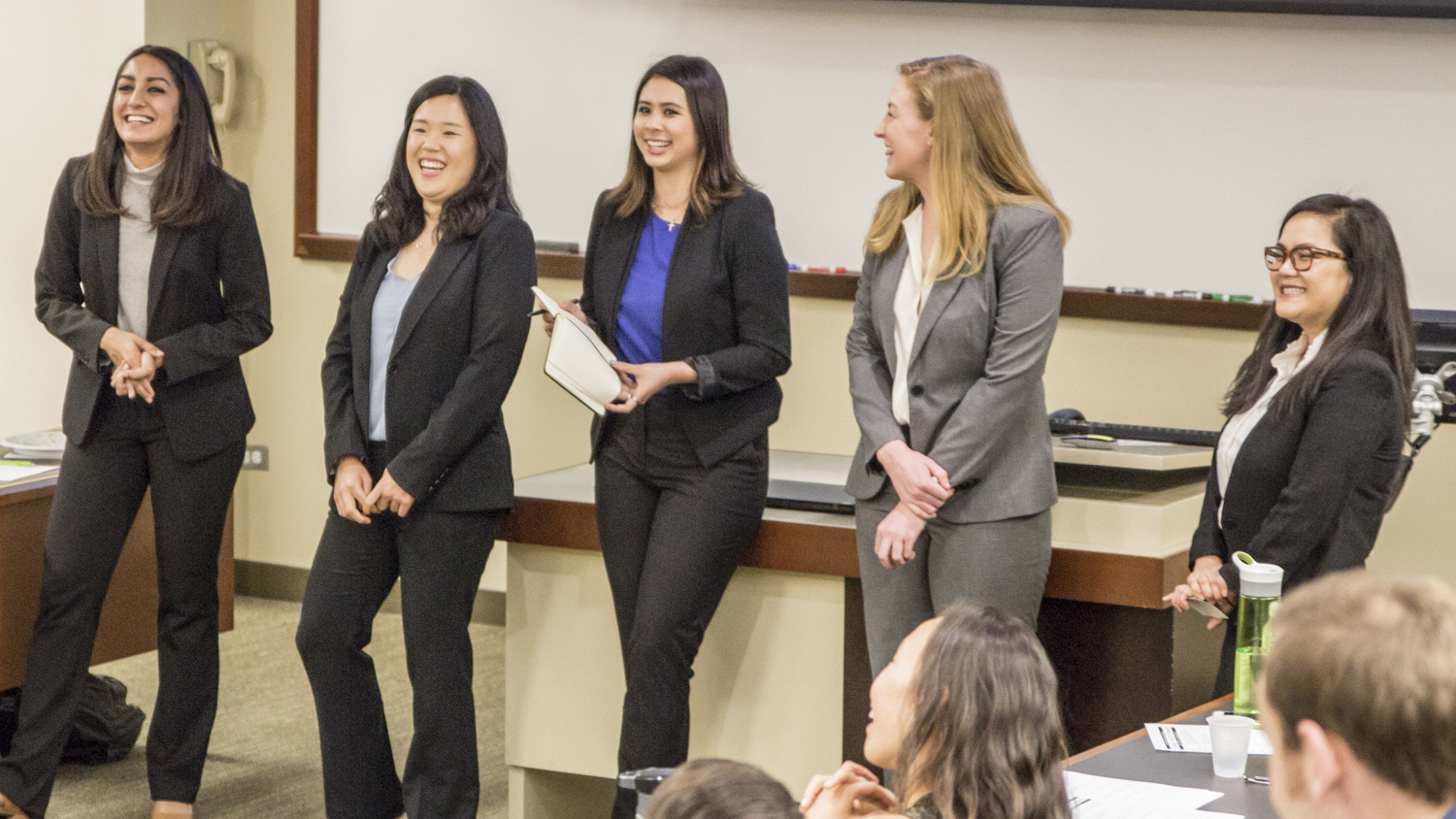

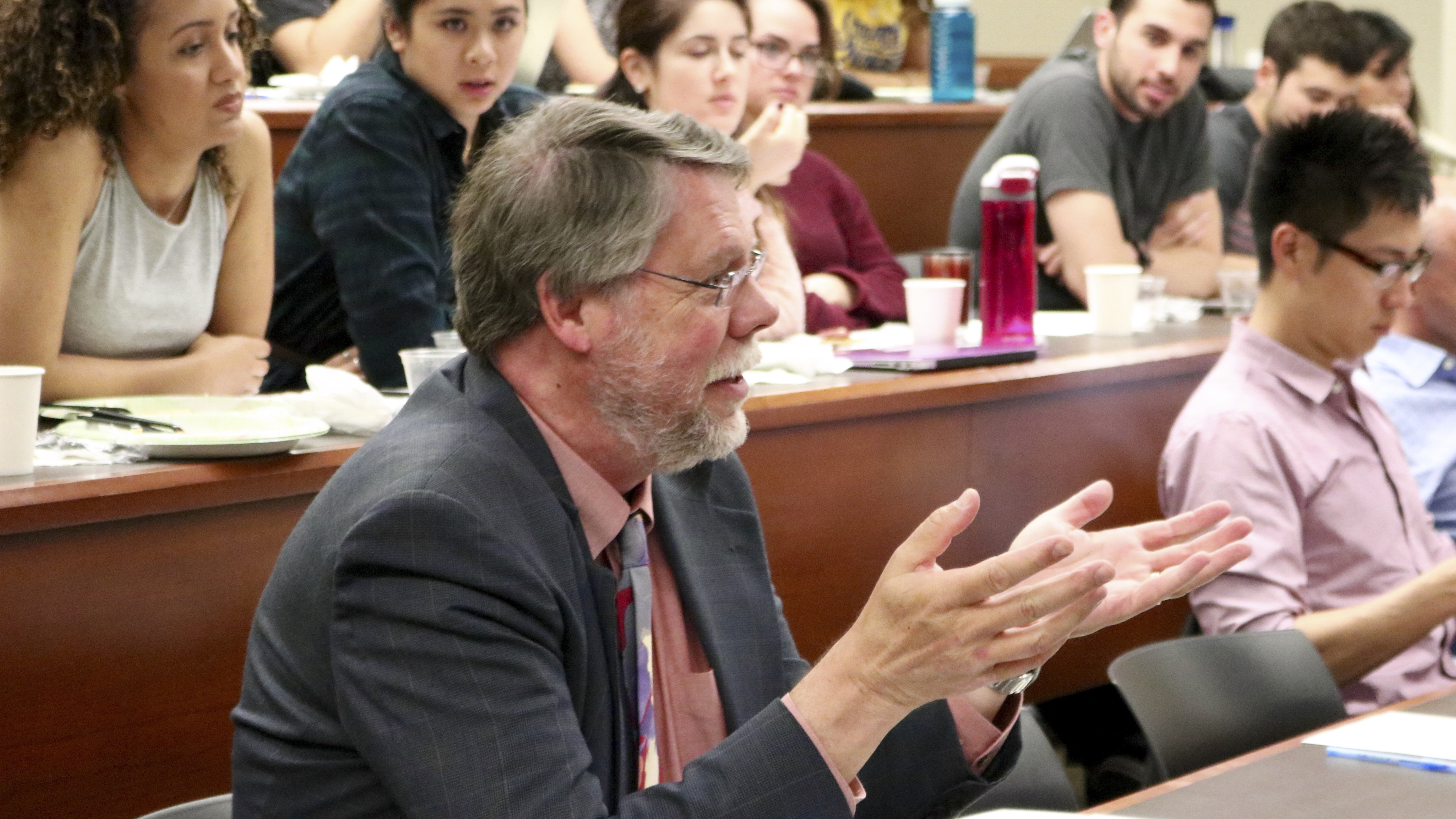

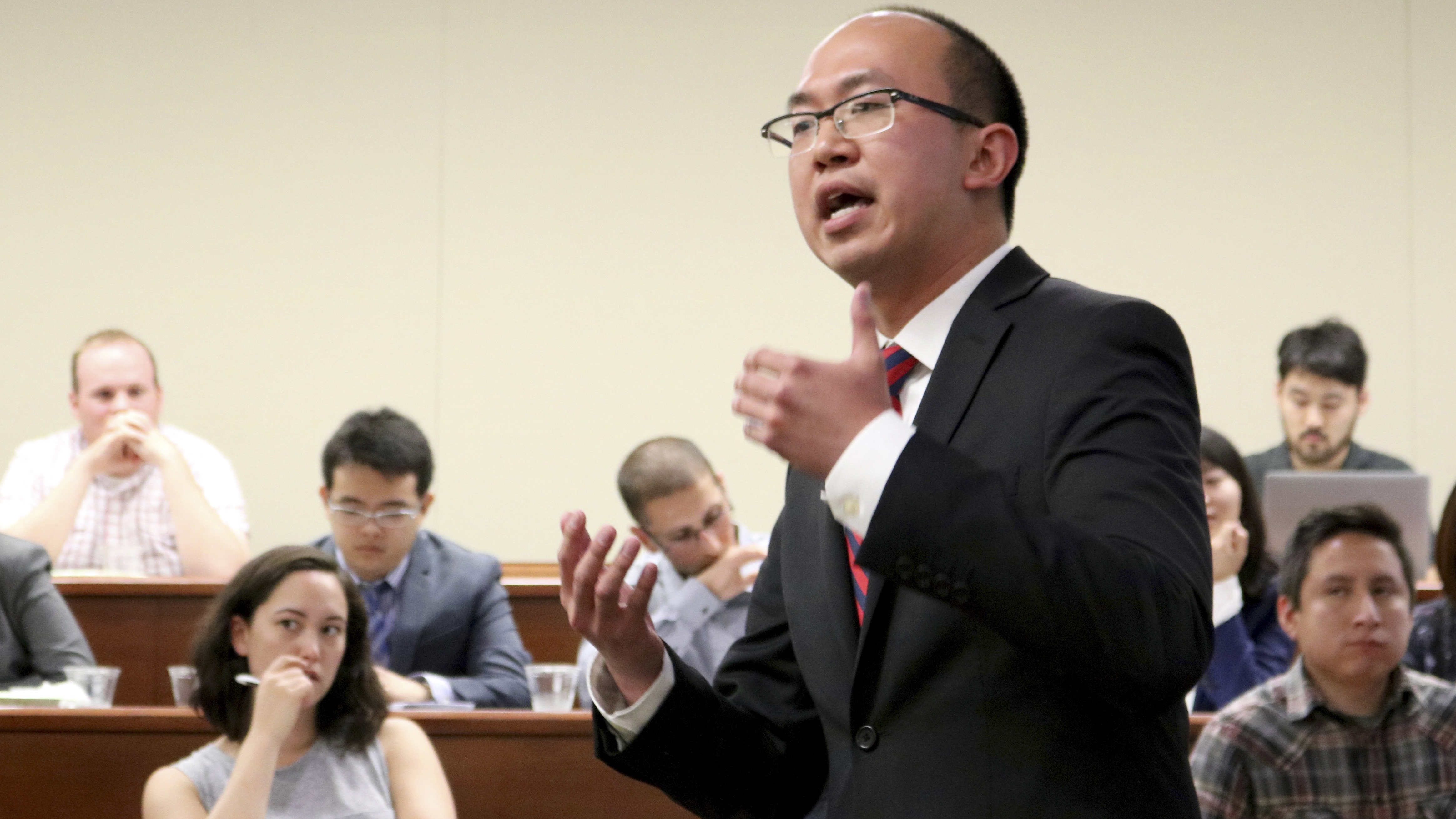

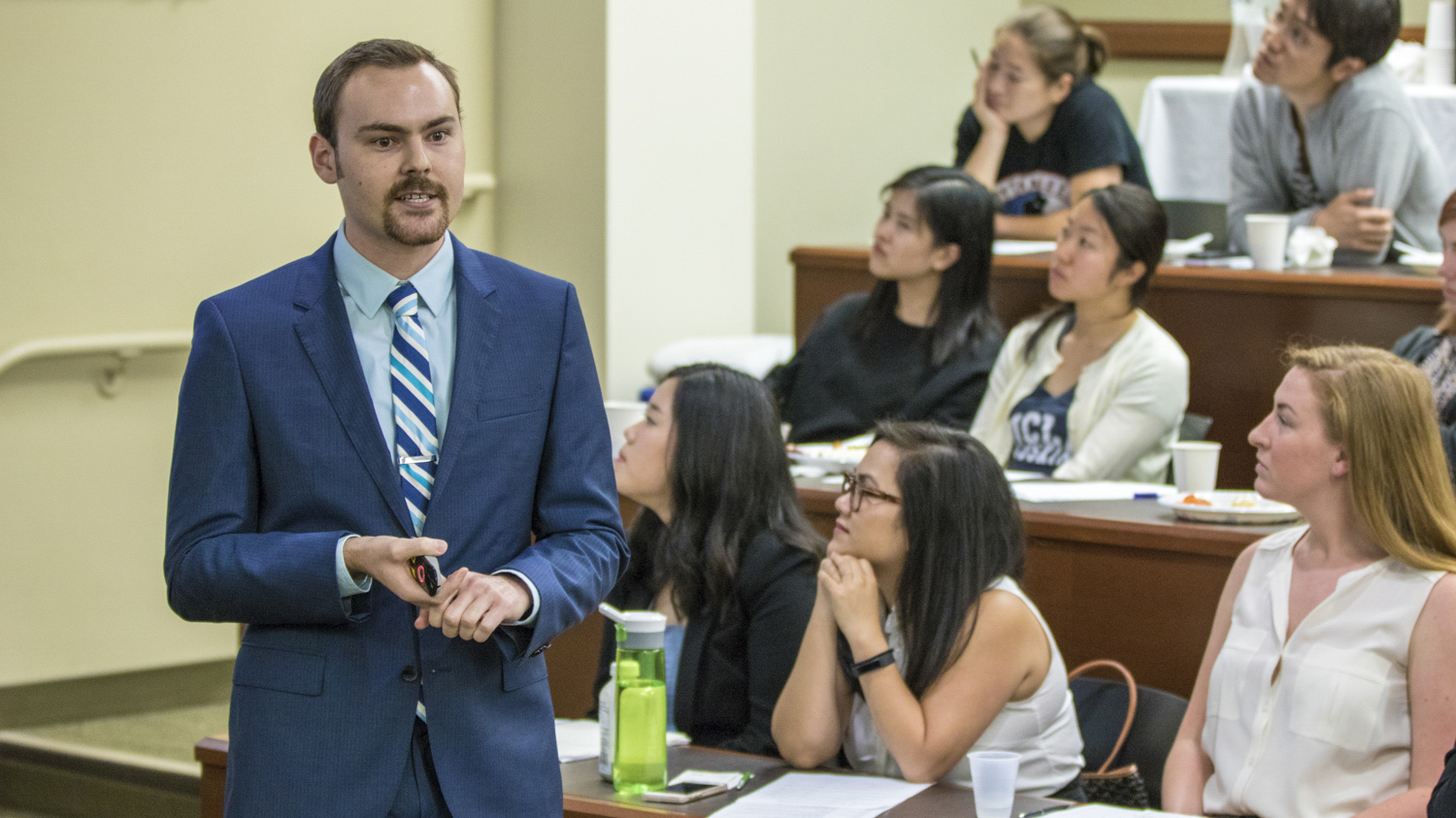

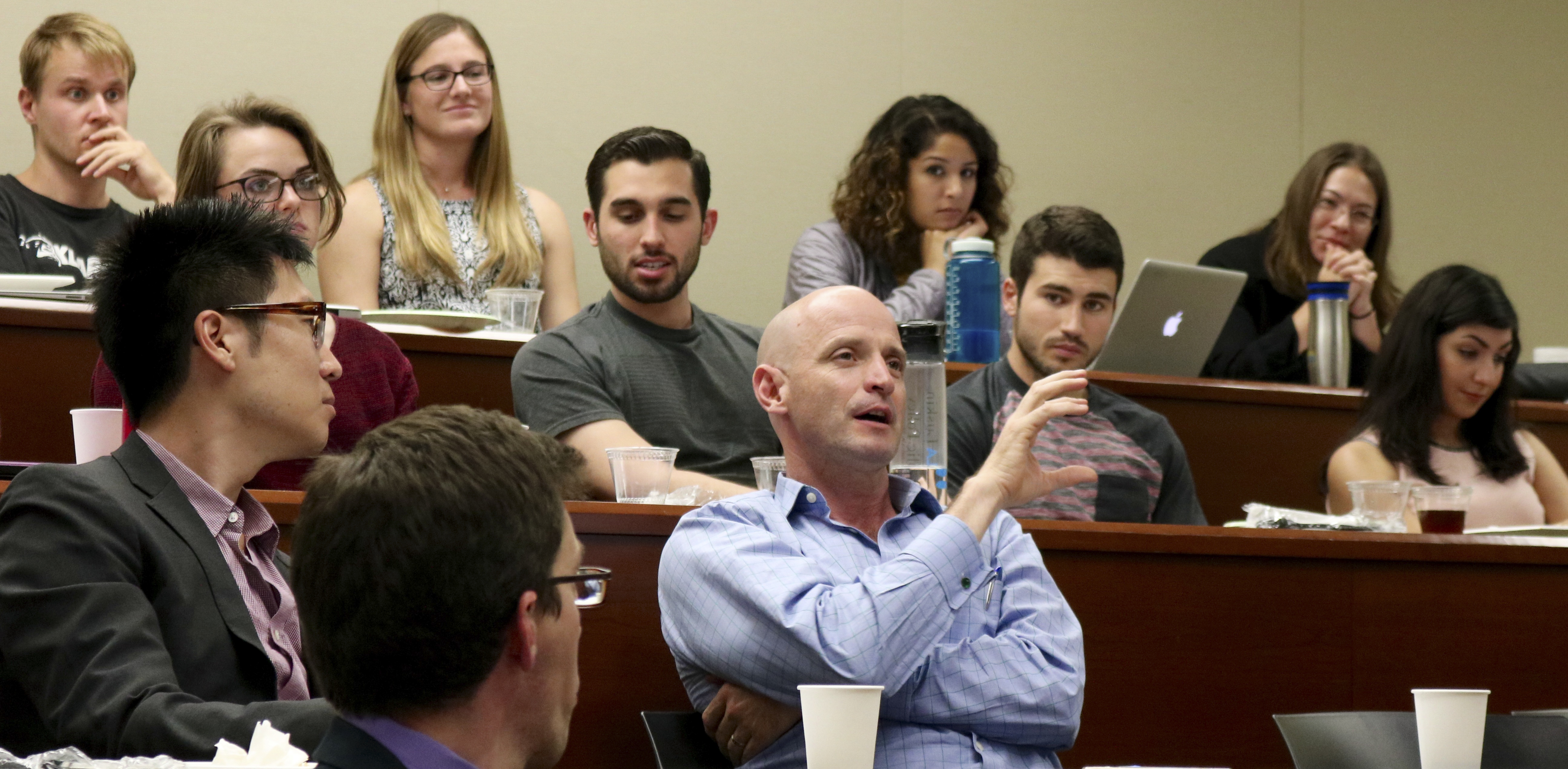

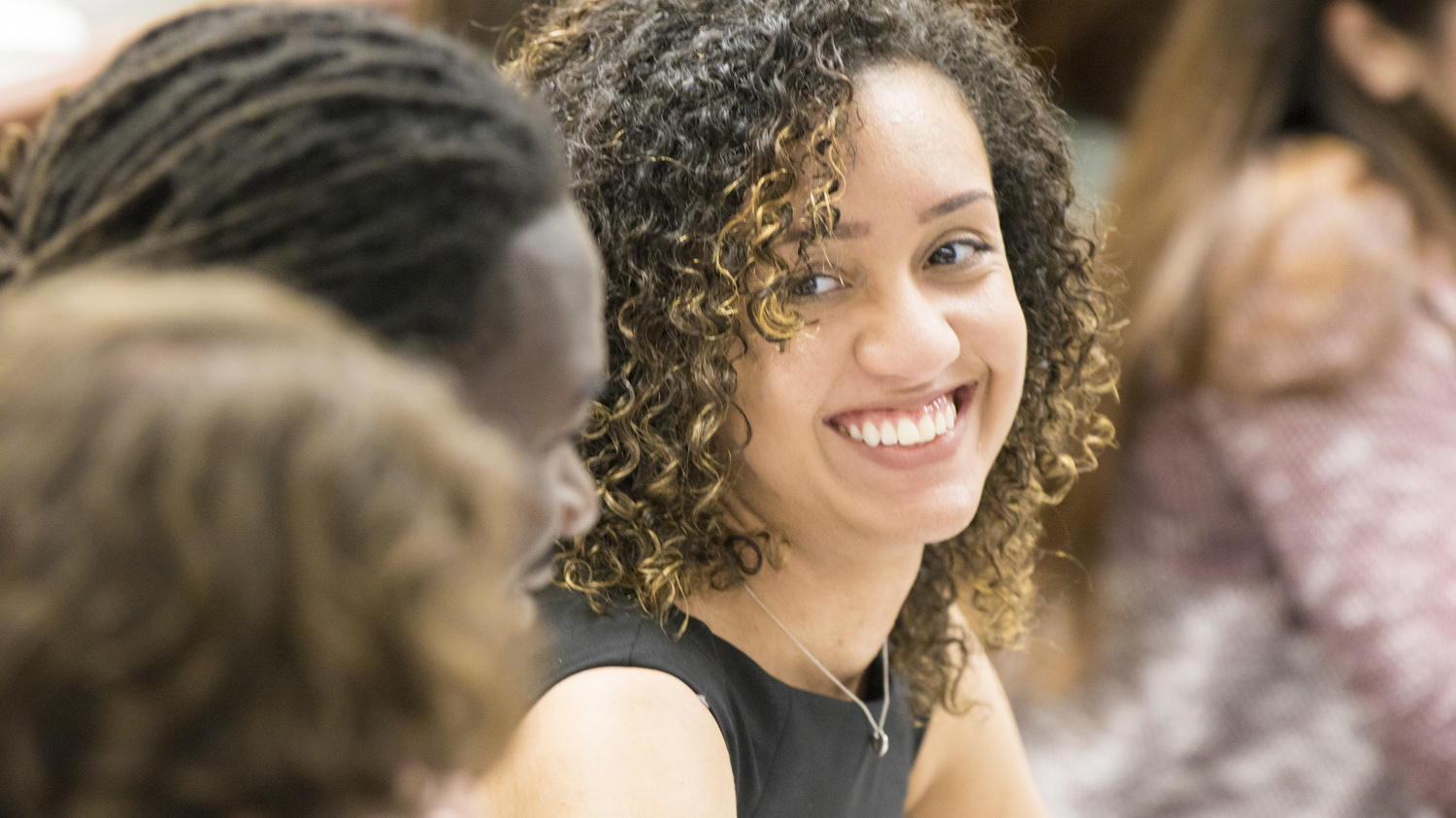

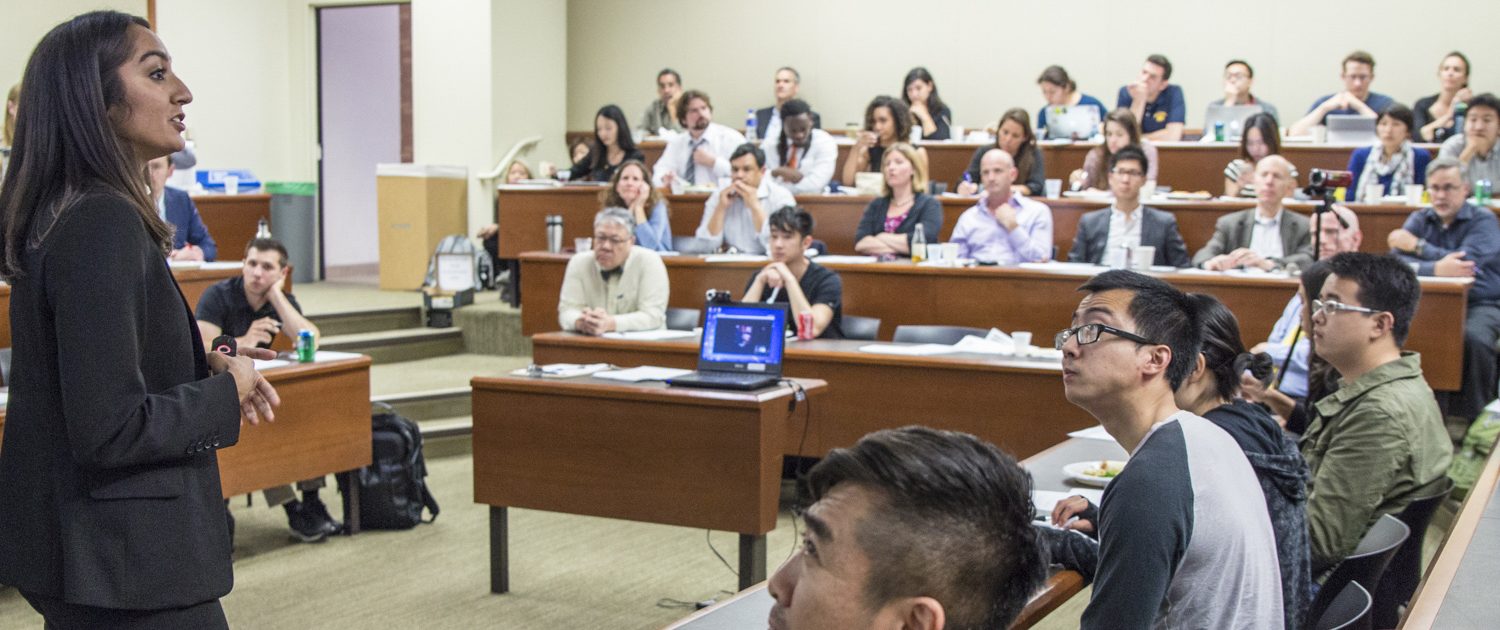



Leave a Reply
Want to join the discussion?Feel free to contribute!